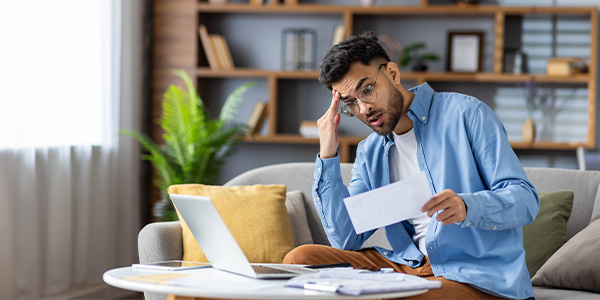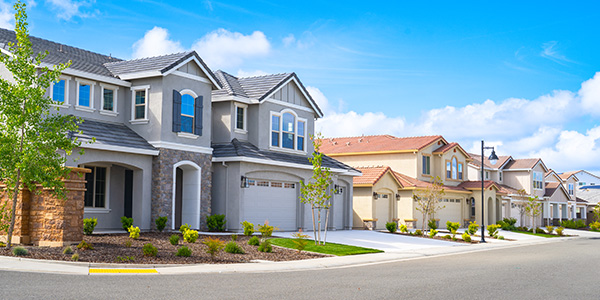Homebuyers
How Much Are Closing Costs?
April 22, 2024
The day you close on a home can be one of the most exciting days of your life. The best way to ensure that you can start celebrating at your new home without any last-minute glitches holding things up is to show up prepared. Buyers are expected to arrive on closing day with cash to cover closing costs. Your closing costs are separate from your down payment. How much are closing costs? In this post, we'll cover everything you need to know!
What Are Closing Costs?
The term "closing costs" refers to a collection of fees covering a variety of different services and expenses needed to get your mortgage finalized. On your journey to closing, you'll require the help of a variety of vendors and service providers. Some of your closing costs will go to them. A portion will be owed to your lender. Before closing, your lender will provide you with a legally required document called a Closing Disclosure that summarizes the final total needed to close.
Factors Affecting Closing Costs
How much are closing costs for buyers? The average buyer will pay between 2% and 6% of the loan amount in closing costs. Generally, the biggest factor impacting closing costs is a home's price. However, some property-related expenses may be higher for people in areas with a higher cost of living compared to people in areas with a lower cost of living. Here's a look at what influences closing costs for buyers:
- Property Purchase Price: With closing costs being in proportion to a home's loan, what you pay for a home is often the biggest factor in determining what you'll pay.
- Loan Amount: Closing costs paid to the lender are based on how much you borrow instead of the price of the home. That means that a larger down payment may reduce closing costs.
- Interest Rate: Generally, interest rates only affect closing costs if you opt to purchase discount points offered by your lender as a way to reduce your rate.
- Discount Points: Mortgage discount points allow buyers to pay lenders prepaid interest in exchange for a lower interest rate. When available, a point is generally equal to 1% of a loan's value.
- Origination Fee: This is a one-time charge for loan processing that is typically charged as a percentage of the borrower's loan balance.
- Mortgage Insurance: An upfront mortgage insurance premium (UFMIP) is a one-time fee due at closing for most FHA buyers that totals 1.75% of a loan.
- Homeowner Insurance: A portion of your annual homeowner insurance premium is typically collected by the lender at closing using escrow.
- Property Taxes: Generally, a buyer will pay a prorated portion of the property tax bill at closing. The same setup often applies when a property is part of a homeowners association (HOA).
- Real Estate Agent Fees: On average, the commission owed to the buyer's agent is 2.5% of the home's sale price.
- Home Inspection Costs: Home inspectors charge fees based on a property's size and the type of inspection being performed. Most inspectors charge several hundred dollars for a standard report.
- Attorney Fees: Your real estate attorney plays a big role in ensuring that you can show up on the closing day with all of the documents needed for a home loan. Fees vary based on the attorney, location, transaction specifics, and the services being provided.
How to Calculate Closing Costs
To get an estimate of what closing costs might look like for a specific property, start by determining your anticipated loan amount. If you're planning to put down 20% on a $300,000 home, your loan total will be $240,000. Next, it's time to determine how much you'll pay based on the fact that closing costs are 2% to 6% of a loan total in most cases. When determining closing costs on the lower side of the average, we can see that 2% of $240,000 is $4,800. When figuring out closing costs on the higher side of the average, 6% of $240,000 is $14,400.
This means that a typical homeowner putting down 20% on a $300,000 home can expect to pay between $4,800 and $14,400 in closing costs. If you're in the process of deciding how much to put down for a down payment, using an affordability calculator can help get an idea of how different factors can influence your monthly payment.
Who Pays Closing Costs?
Both buyers and sellers pay closing costs. As we covered above, the average buyer will pay somewhere between 2% and 6% of a loan amount in closing costs. That works out to about 1.8% to 4% of a home's actual purchase price for most buyers. Here's a rundown of the various costs that may contribute to buyer closing costs:
- Property Appraisal
- Escrow
- Title costs
- Lawyer fees
- Discount points (optional)
- Mortgage Insurance
- Property tax
- HOA fees
- Title insurance
- Interest
- Recording fee
- Application fee
- Inspection
- Flood certification
- Loan origination
- Survey fee
- Homeowners Insurance
- Lender fees
- Courier fee
- Notary fee
- Real estate commissions
How Much Are Closing Costs for Seller?
How much are closing costs for a seller? For sellers, closing costs are closer to 6% to 10% of a home's sale price. The biggest closing costs for most sellers include prorated property taxes, lawyer fees, and real estate commissions.
In some cases, sellers will take on extra closing costs as part of seller concessions. A seller concession is a portion of a buyer's closing costs or prepaid expenses that a seller agrees to finance to close. This is more common in buyer-friendly markets because sellers may be eager to get their homes sold. Sellers may also offer to pay some closing costs to offset the costs of repairs or updates needed at a property. The goal of a seller concession is to make a home more affordable for the buyer.
Negotiating Closing Costs
It's important to know that who pays closing costs is not something that you will work out with your lender. This is part of the negotiation process between buyers, sellers, and their agents. Buyers can sometimes reduce closing costs by asking for concessions. While not guaranteed, this is sometimes possible in markets where demand is low. A seller may also agree to finance a buyer's mortgage points to encourage a sale when a home needs updates or repairs. While buyers aren't ordinarily asked to cover seller fees, a seller may ask a buyer to waive inspections in a hot market.
The truth is that some closing fees are simply non-negotiable. However, you may be able to cut closing costs as a first-time homebuyer by shopping around for different service providers. For example, asking for quotes from at least three different home inspectors can help you pay less than average. Additionally, asking real estate attorneys about their hourly rates before signing on can be a smart way to save. Finally, remember that closing costs only represent one aspect of buying a home. Shopping around for different types of mortgages with a trusted lender can help you find the best way to get affordable monthly payments that make your dream of ownership a reality!








 Smart Moves Start Here.
Smart Moves Start Here.